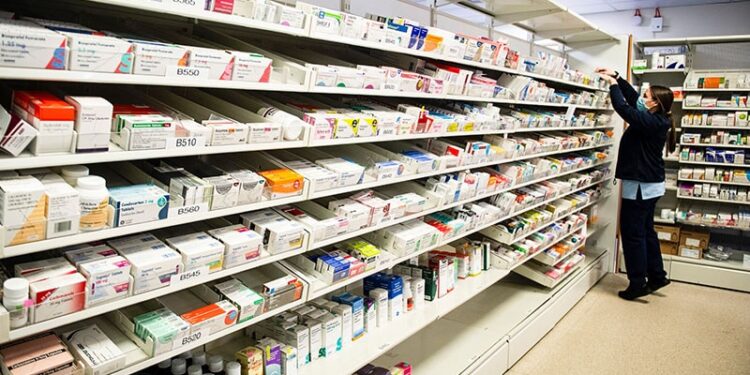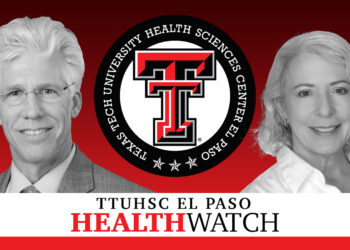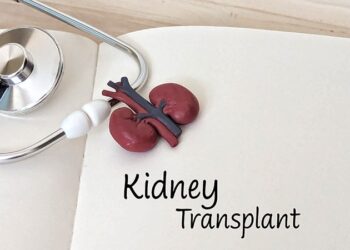The government has reached a settlement with Community Pharmacy England (CPE) for a new funding package worth an extra £617 million over 2 years. The deal aims to address financial challenges facing pharmacies and resolve a dispute with the National Pharmacy Association (NPA) over rising operational costs.
The agreement follows concerns over increased expenses, including April’s hike in employer national insurance contributions, increases to the national living wage, and a rise in business rates.
NPA Pauses Planned Action
The NPA had previously advised its 6000 member pharmacies in England to begin reducing opening hours and cutting services from 1 April if a funding deal was not reached. The organisation warned that unfunded cost increases, following a decade of real-terms funding cuts could jeopardise patient safety.
The NPA has now put its planned action on hold to review the details of the proposed settlement.
Morning-after Pill to Be Free from NHS Pharmacies
The funding deal includes a range of new pharmacy services, notably making emergency contraception (the ‘morning-after pill’) available free of charge at NHS pharmacies for the first time.
In a press release, the Department of Health and Social Care (DHSC) said this move would end the “postcode lottery” that that women face in accessing the medication and help reduce inequalities. Officials described the initiative as a step towards strengthening community pharmacy and shifting healthcare provision from hospitals to local settings.
“Years of Neglect” Acknowledged
In addition to the extra £617 million, the government said it would write off £193 million of debt for community pharmacy owners, “to give them confidence going into the new financial year.” The DHSC acknowledged that the sector had been facing “significant financial shortfalls”.
England’s Health Minister Stephen Kinnock stated that a decade of underfunding and neglect “has left the sector on the brink of collapse.”
Around 90% of a pharmacy’s services, including dispensing medication and giving vaccinations, are NHS-funded. Before this deal, there had been no confirmation of funding for the 2024-2025 or 2025-2026 financial years after the CPE rejected an offer from the previous government.
Responding to the funding announcement, CPE chief executive Janet Morrison said: “We came to these negotiations as a sector in crisis – with the impact of a decade’s worth of real-terms cuts to funding leaving pharmacy businesses fighting to survive, and closures continuing at an alarming rate.” She described the settlement as “a positive first step in the right direction” for pharmacies.
Final Settlement Totals £3 Billion
The deal provides an additional £106 million for the current financial year and a further £375 million for 2025-2026, bringing the total funding package for the coming year to just over £3 billion.
This represents a 15% increase from the previous year, higher than the 5.8% growth in the total NHS budget.
Expanded Pharmacy Services
The deal includes several measures to improve patient access, ease pressure on GPs, and cut waiting lists. These include:
- Support for patients prescribed antidepressants.
- Expanded in-pharmacy consultations, including medicines advice, Pharmacy First services, and blood pressure checks.
- Added incentives for pharmacists to identify patients with undiagnosed high blood pressure.
- Increasing fees linked to dispensing prescriptions and writing off historic debt linked to dispensing activity during the pandemic period.
Kinnock described community pharmacists as “the heart of local healthcare” and said the government wanted them to play a bigger role in shifting care out of hospitals and into the community. The package of “record investment and reform” was “a vital first step to getting community pharmacies back on their feet and fit for the future”, he said.
David Webb, chief pharmaceutical officer for England, said the investment underscored the importance of community pharmacy as an integral part of the NHS team, providing clinical care, optimising medicines use, and supporting people in their neighbourhoods to prevent ill-health.
Amanda Doyle, NHS national director for primary care and community services, welcomed the funding deal as enabling community pharmacists “to build on their success in supporting patients through expanding their roles in recent years.”
Dr Sheena Meredith is an established medical writer, editor, and consultant in healthcare communications, with extensive experience writing for medical professionals and the general public. She is qualified in medicine and in law and medical ethics.
Source link : https://www.medscape.com/viewarticle/pharmacy-protests-england-hold-following-funding-deal-2025a10007od?src=rss
Author :
Publish date : 2025-03-31 17:24:00
Copyright for syndicated content belongs to the linked Source.














